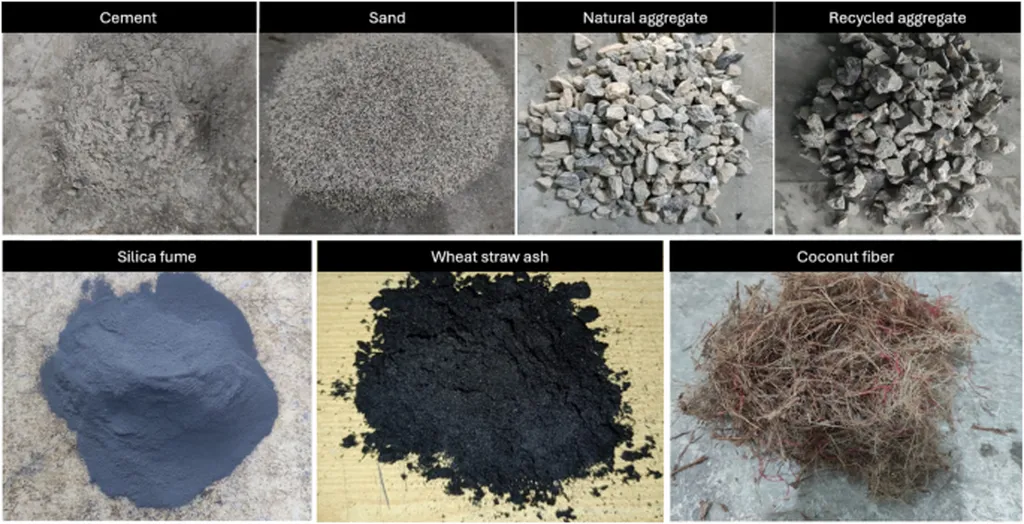In a world increasingly focused on sustainability, researchers are turning to unconventional materials to enhance construction practices. A recent study published in the journal *Construction Materials* (translated from Arabic as “Building Materials”) has uncovered promising insights into the use of untreated coconut coir fibers as a sustainable reinforcement in cement mortars. The research, led by Danah Alenezi from the College of Engineering and Technology at the American University of the Middle East, offers a glimpse into the future of eco-friendly construction materials.
Alenezi and her team investigated the combined effects of fiber content and length on the mechanical performance and water absorption of cement mortars. “We were particularly interested in understanding how varying the amount and length of coconut fibers could impact the strength and durability of the mortar,” Alenezi explained. The study tested sixteen different mortar mixes, each with varying fiber content (ranging from 0.5% to 2.0% by volume) and fiber lengths (from 10 mm to 25 mm).
The results were striking. Moderate additions of coconut fibers significantly improved both the strength and durability of the mortar. The optimal mix, which contained 1.0% fiber with a length of 15 mm, achieved impressive flexural and compressive strengths of 8.36 MPa and 29.28 MPa, respectively. These values represent a 61% and 131% improvement over the control mix, which contained no fibers. Additionally, this optimal mix recorded the lowest water absorption rate at just 8.38%, a testament to the improved fiber-matrix bonding and densification of the interfacial transition zone.
“Our findings demonstrate that untreated coconut waste fibers can indeed enhance the performance of cement mortars,” Alenezi noted. “This not only contributes to sustainable construction practices but also aligns with the principles of the circular economy and the United Nations’ Sustainable Development Goals.”
The study also revealed that excessive fiber dosages led to agglomeration, reduced workability, and diminished performance. To better understand these relationships, the researchers developed a third-degree polynomial regression model to predict mechanical properties based on fiber parameters. This model could serve as a valuable tool for future research and practical applications.
The implications of this research are far-reaching, particularly for the energy sector. As the demand for energy-efficient and sustainable buildings continues to grow, the use of bio-based materials like coconut coir fibers could play a crucial role in reducing the environmental impact of construction. By incorporating these natural fibers into cement mortars, builders can create structures that are not only stronger and more durable but also more eco-friendly.
“This research provides practical insights into fiber optimization and supports the broader adoption of bio-based materials in cementitious systems,” Alenezi said. “We hope that our findings will encourage further exploration and innovation in this field.”
As the construction industry continues to evolve, the integration of sustainable materials like coconut coir fibers could shape the future of building practices. By embracing these eco-friendly alternatives, we can move towards a more sustainable and resilient built environment. The study, published in *Construction Materials*, offers a compelling case for the potential of natural fiber reinforcement in cement mortars, paving the way for a greener future in construction.

